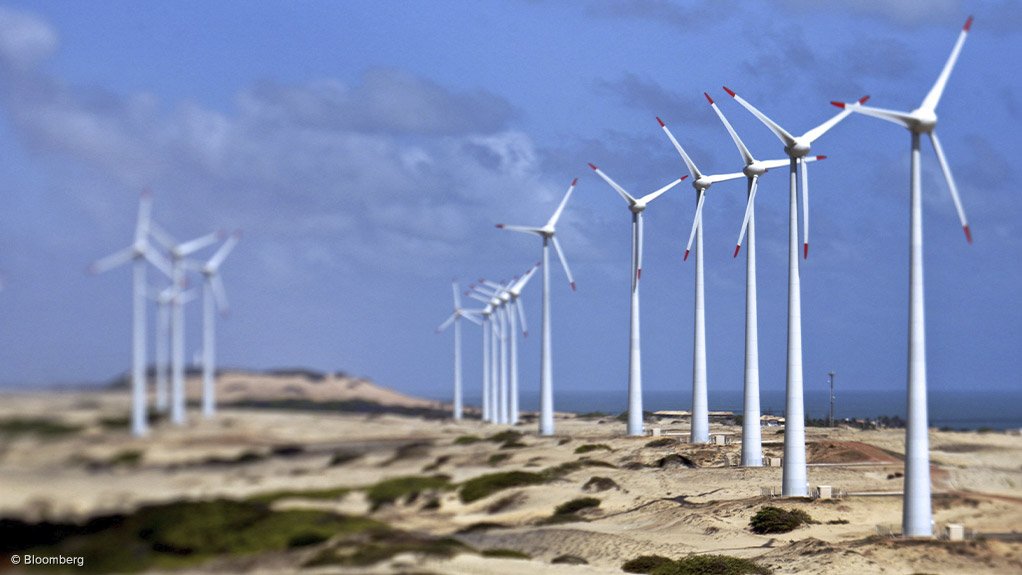Economic stimulus measures adopted in response to the Covid-19 pandemic should embrace sustainability and climate goals, International Renewable Energy Agency (Irena) director-general Francesco La Camera argues in the agency’s Renewables Capacity Statistics 2020 report.
Released on April 6, the yearly publication shows that the renewable energy sector added 176 GW of generating capacity globally in 2019, marginally below the 179 GW added in 2018. New renewable power accounted for 72% of all power expansions last year, however.
A total of 98 GW of solar photovoltaic (PV) was installed in 2019, 60% of which was in Asia. Wind energy expanded by close to 60 GW, led by growth in China (26 GW) and the US (9 GW).
“The two technologies now generate 623 GW and 586 GW respectively – close to half of global renewable capacity. Hydropower, bioenergy, geothermal and marine energy displayed modest year-on-year expansion of 12 GW, 6 GW, 700 MW and 500 MW respectively,” Irena states.
The report has been published against an expectation that the pace of renewables deployments will slow in 2020, owing to the impact that the global Covid-19 health crisis is having on supply chains, project construction and new investment.
Prior to the pandemic, the International Energy Agency (IEA) forecast that 2020 would be a record year for renewable electricity additions, with the global installation of solar PV and wind generators forecast to outpace 2018 levels by over 20%.
On April 4, however, the IEA indicated that the pandemic was already slowing down activity. It notes that supply chains have been affected in light of the fact that Chinese factories manufacture about 70% of the global supply of solar panels, while a further 10% to 15% are made by Chinese companies operating in South East Asia.
The wind energy supply chain, which is much more globally interconnected, has experienced disruptions to the supply of parts from China and the closure of manufacturing facilities in Italy, Spain and India. “The effects are already being felt in the United States where multiple projects have received force majeure notices from suppliers warning developers about possible delivery delays.”
The IEA says the unprecedented economic impact of the coronavirus crisis could translate to growth of renewable capacity additions in 2020 slowing down “for the first time in history”.
“However, governments have the ability to change this trajectory with targeted policies that can enable renewables to grow sustainably in the coming years.”
The IEA proposes three main actions that could help repair the economic damaged caused by Covid-19 and help spur the deployment of renewable energy, including:
- Extending deadlines for commissioning projects beyond 2020 in order to account for delays due to supply chain disruptions or labour constraints. This will enable renewable project developers to avoid financial penalties that may weaken their financial situation in a difficult economic context while allowing them to keep previous incentives for which they had qualified.
- The development of specific financing measures and incentives for renewable projects in upcoming stimulus packages, focusing on reducing the risks for capital-intensive utility-scale solar PV and wind projects under dire macroeconomic conditions, especially for small developers.
- And aligning short-term policy actions on renewables with new medium- and long-term visions that aim to achieve a rapid peak in greenhouse gas emissions this decade and a steep decline thereafter.
Irena’s La Camera also stresses the need for governments to avoid the temptation of focusing on short-term solutions only in a context where distinctions between short-, medium- and long-term challenges may be deceptive.
“At this challenging time, we are reminded of the importance of building resilience into our economies. In what must be the decade of action, enabling policies are needed to increase investments and accelerate renewables adoption,” La Camera said, describing the existential threat posed by the coronavirus as sitting “alongside climate change as a defining challenge of our time”.
The IEA, meanwhile, argues that stimulus packages provide countries with a unique opportunity to prepare the world’s electricity infrastructure for a future that will require strong grids and greater sources of flexibility to accommodate increasing shares of variable renewables such as wind and solar PV.
“The coronavirus pandemic poses a significant threat to the timely deployment of renewables and their vital contribution to clean energy transitions. But governments can enable these technologies to emerge from the crisis with renewed momentum and play an important role in the global economic recovery.”
EMAIL THIS ARTICLE SAVE THIS ARTICLE ARTICLE ENQUIRY
To subscribe email subscriptions@creamermedia.co.za or click here
To advertise email advertising@creamermedia.co.za or click here











